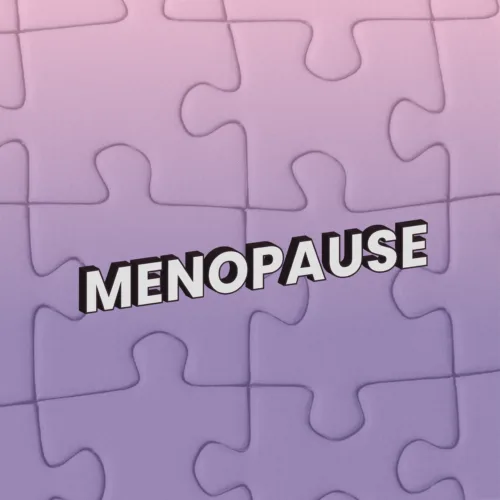You Asked, We Answered: Navigating Perimenopause and Menopause (Part One)

5 Minute Read
Understanding Perimenopause and Menopause: Health, Hormones, and Self-Advocacy
By Oumeet Ravi, BSC., BSC.N, MSC.N, Primary Care Nurse Practitioner
Menopause is a major life transition that affects every woman, yet it’s still too often misunderstood, underdiscussed, and undertreated, especially in healthcare and workplace settings. The physical and emotional changes that come with perimenopause and menopause can significantly impact well-being, relationships, and quality of life, making it essential to have clear, accessible information and support.
Every month, Kii Health offers monthly Ask an Expert webinars to its clients. During our recent session on perimenopause and menopause, we received many thoughtful questions, so many that we couldn’t answer them all during the live webinar. To continue the conversation, we’ve compiled them into a two-part Q&A blog series.
In Part One, we’re focusing on the foundations: what’s happening in your body during menopause, how hormone therapy works (and when it may or may not be the right choice), and how to advocate for your health. Part two will tackle symptom management, lifestyle strategies, and how to approach menopause in the workplace.
As always, please note that this is general information based on my clinical experience and does not substitute for more personalized information specific to your situation. For specific health conditions and how they relate to perimenopause/menopause, it’s always best to talk to your healthcare practitioner. They can help tailor advice to your personal health, symptoms, and risk factors.
GENERAL QUESTIONS ABOUT PERIMENOPAUSE/MENOPAUSE
Should I worry if I am in my mid-50s and haven’t really had any symptoms besides an occasional hot flash once in a while at night? I know I am heading into menopause, should I be concerned with really no symptoms?
No, you don’t need to worry. Everyone experiences menopause differently. Some women have many symptoms, others have very few or almost none. It’s perfectly normal. An occasional night hot flash is mild and not a concern. The important thing is to continue regular check-ups to monitor bone health, cholesterol, and overall well-being as you move through menopause. If you ever develop new symptoms that bother you or changes like very heavy bleeding, see your healthcare provider. Otherwise, you may just be one of the lucky ones with an easier transition.
Who can you have this conversation with if you do not have a family doctor? Can a walk-in clinic help? What test can one take to assess perimenopause?
There are many clinics (both public and private) that offer women’s health. It would be best to consult those.
How much does the father’s side of genetics influence (peri)menopause?
The timing of menopause is influenced mostly by your mother’s side, because it’s strongly tied to how your ovaries age, which generally follows the pattern of the women in your family. Your father’s side has very little impact on when you’ll start perimenopause or menopause, since men don’t pass down ovarian aging patterns. So, if you’re wondering when menopause might happen, your mother’s age at menopause is usually a better clue.
Is contraception needed after menopause?
No. Once menopause is confirmed, contraception is no longer needed, because you can no longer get pregnant. Menopause is officially defined as 12 months in a row without a period (not caused by other medical reasons). After that point, your ovaries have stopped releasing eggs, so pregnancy is no longer possible. Until then (during perimenopause, when cycles can be irregular), you can still get pregnant, so contraception is recommended.
Is it true that when menopause happens, some women are more sexually charged?
Yes, that can be true for some women. While many women notice a drop in sex drive around menopause because of lower estrogen and vaginal dryness, others actually feel more sexually charged or freed up. This can be because of:
- No more worries about pregnancy
- More time or confidence at this stage of life
- Hormonal shifts that can affect each woman differently (some may feel a spike in libido)
Everyone’s experience is unique. If you feel this way, it’s completely normal.
Can the use of birth control delay or mask perimenopause?
It’s always best to talk to your healthcare practitioner. They can help tailor advice to your personal health, symptoms, and risk factors.
How can you delay perimenopause?
There is no proven way to delay when perimenopause starts, because it’s mainly determined by your genetics and natural ovarian aging. However, healthy habits, such as not smoking, staying at a healthy weight, eating well, and managing stress, may support overall hormone health, but they don’t truly delay perimenopause itself. Hormone therapy can treat symptoms once they begin, but it does not postpone menopause.
GENERAL HEALTH QUESTIONS
Is there a link between elevated cholesterol levels and menopause?
Yes. When women reach menopause, the body makes less estrogen, a hormone that also helps keep cholesterol levels in balance. As a result, it’s common for cholesterol (especially LDL, the “bad” cholesterol) to rise after menopause, even if diet and lifestyle haven’t changed. Why does this matter? Higher cholesterol can increase the risk of heart disease and stroke over time. What can you do? Eat heart-healthy foods (more veggies, whole grains, lean proteins), stay active, avoid smoking, and have your cholesterol checked regularly.
How do you know if it’s menopause if you had a hysterectomy a few years ago and don’t have a period?
If you’ve had a hysterectomy (your uterus removed) but kept your ovaries, you won’t get periods, so you can’t rely on them to know if you’ve reached menopause. In this case, menopause is usually recognized by symptoms, like hot flashes, night sweats, mood changes, or vaginal dryness, which happen as your ovaries slow down estrogen production. If your ovaries were also removed, you would go into surgical menopause right away, regardless of age.
HORMONE REPLACEMENT THERAPY
Hormone replacement therapy (HRT) – what are the pros, cons, and risks?
Hormone replacement therapy (HRT) replaces estrogen (and sometimes progesterone), which you stop making during menopause. It’s the most effective treatment for hot flashes, night sweats, and sleep problems. Benefits can include:
- Relief from hot flashes, night sweats, and sleep issues
- Improvement in vaginal dryness and pain during sex
- Protection for bones and reduced fracture risk
- Possible positive effects on heart and brain health if started around the onset of menopause
Possible side effects can include bloating, headaches, breast tenderness, and mood changes. Other downsides and risks can include:
- Slightly higher risk of blood clots and stroke, especially with oral estrogen
- Small increased risk of breast cancer, especially if used for more than 5 years
- If estrogen is used without progesterone and you still have your uterus, there’s a rare risk of uterine cancer.
Is HRT safe?
Yes, for most women in early menopause with bothersome symptoms, benefits usually outweigh risks, especially when it’s started early and taken for the shortest time needed. HRT is not ideal for everyone, and doses, type (pill, patch, cream), and timing all matter. Talk openly with your doctor about your symptoms, health risks, and goals. Ask if HRT is right for you and which form is safest
If not suitable, there are non-hormonal options to ease symptoms. For more detailed, accurate info, visit The Menopause Society’s website: https://menopause.org/patient-education/menopause-topics/hormone-therapy.
When is hormone therapy not a good option?
Careful consideration of the following, depending on diagnostic investigation and clinician experience are important:
- History of breast cancer
- History of endometrial cancer (or other estrogen-dependent cancers)
- Undiagnosed vaginal bleeding
- Active or recent blood clot (DVT, PE)
- Active or recent stroke or heart attack
- Severe liver disease
- Known clotting disorders (like protein C, S, or antithrombin deficiency)
My family doctor said that she was not comfortable prescribing hormone therapy because it was beyond her scope of practice. I am now waiting to see a gynecologist. Why are family doctors not being trained to support women in perimenopause?
It’s understandable to feel frustrated. Many family doctors and primary care clinicians (including nurse practitioners / NPs / IPS) do not feel fully comfortable prescribing hormone therapy, especially for complex cases, because menopause care is almost like a specialty on its own. Hormone therapy requires careful evaluation of risks (e.g., clotting, cancer history, cardiovascular health) and benefits, and many primary care providers receive only limited formal training on perimenopause and menopause in their general medical education. That said, many family doctors and NPs actively pursue additional courses and certifications in women’s health and menopause management, so they can better support patients. Those who don’t often choose to refer patients to gynecologists or menopause specialists to ensure they receive expert care.
Is hormone therapy safe for those with a family history of ovarian cancer?
It would be best to discuss with your provider. Every case is different, and they can help you decide what’s safest and best for your personal situation.
Is HRT safe long term?
Hormone replacement therapy (HRT) is generally safe for healthy women if started near menopause and used for a limited time (usually up to 5 years). Long-term use beyond 5 years may increase the risk of breast cancer, blood clots, stroke, and other problems, depending on your health and the type of HRT. That’s why it’s usually recommended to use the lowest effective dose for the shortest time needed. Some women may stay on HRT longer under close medical supervision if the benefits (such as for severe symptoms or bone health) clearly outweigh the risks. It’s best to discuss with your healthcare provider, as it really depends on your personal risks.
What if your family doctor is not an advocate of HRT?
If your family doctor is not an advocate of HRT, it doesn’t mean you can’t explore this option. It simply means they may not feel comfortable prescribing it or may prefer non-hormonal approaches. You can ask for a referral to a gynecologist or a menopause specialist who is more experienced with HRT. It’s your right to discuss all options and get a second opinion if needed.
ADVOCATING FOR YOUR HEALTH
What questions do I ask my doctor to test for everything? I’m 39 and feel like something is not right, but my doctor says I’m fine. I have a family history of thyroid issues and diabetes, but they say I’m fine.
It’s best to obtain a second opinion if you are not satisfied with your current provider. However, I highly encourage you to discuss these matters openly with your physician. An honest conversation can often help clarify your concerns and ensure you get the care you need.
What advice would you give for self-advocacy with providers who are reluctant to treat as symptoms of peri/menopause, and dismiss requests for say, hormone therapy, or even doing a hormone panel?
It can be really frustrating when you feel your concerns are dismissed. Here’s some advice to help you advocate for yourself:
- Prepare before your visit: Write down your symptoms, how long they’ve been happening, and how they affect your daily life. Be specific. For example, “I wake up 4 times a night, drenched in sweat, and can’t function at work the next day”.
- State clearly what you want to explore. For example, “I’d like to discuss whether my symptoms could be related to perimenopause and if hormone therapy is an option. Could we do a hormone panel or at least talk about it?”
- Be firm but polite: “I understand guidelines suggest hormone levels aren’t always needed to diagnose perimenopause, but I’d still feel more comfortable having a baseline or ruling out other issues. Can we do that?”
- Ask for alternatives if they’re reluctant: “If you don’t recommend hormone therapy, what options do you suggest for my symptoms?”
- Consider a second opinion: If you continue to feel dismissed, it’s reasonable to look for another provider, ideally one with an interest in women’s health or menopause.
Remember, you are the expert on how you feel. It’s okay to respectfully push for answers or ask to be referred to someone else.
Stay tuned for part two – and in the meantime, if you find yourself struggling with this stage of life or are trying to support someone in your life who is, don’t hesitate to reach out. Kii Health offers our clients a range of supports that can help you manage your well-being through this stage.


